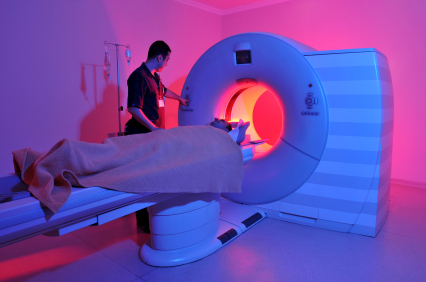The American Medical Society for Sports Medicine (AMSSM) has released a list of five tests and procedures that are commonly ordered but not always necessary in sports medicine.
The list, issued as part of Choosing Wisely®, an initiative of the ABIM Foundation, identifies five targeted, evidence-based recommendations that can support conversations between patients and physicians about what care is really necessary.

AMSSM recommends that doctors:
- Avoid ordering a brain CT or brain MRI to evaluate an acute concussion unless there are progressive neurological symptoms, focal neurological findings on exam or there is concern for a skull fracture.
- Avoid ordering an abdominal ultrasound examination routinely in athletes with infectious mononucleosis.
- Not prescribe oral contraceptive pills as initial treatment for patients with amenorrhea (irregular or no period) or menstrual dysfunction due to the female athlete triad (defined as low energy availability with or without disordered eating, menstrual dysfunction and low bone mineral density).
- Avoid ordering a knee MRI for a patient with anterior knee pain without mechanical symptoms or effusion unless the patient has not improved following completion of an appropriate functional rehabilitation program.
- Avoid recommending knee arthroscopy as initial management for patients with degenerative meniscal tears and no mechanical symptoms.
"In the spirit of fostering excellence in the care and safety of our athletes and patients, AMSSM physicians value the opportunity to engage patients in conversations that address evidence-based care, shared decision making, and unnecessary and/or harmful interventions," said Christopher Madden, MD, incoming president of the AMSSM.
"AMSSM appreciates the importance of quality initiatives and the principles of the Triple Aim - improving patient and population health, enhancing patient experiences and outcomes, and reducing unneeded cost in healthcare. The Choosing Wisely measures we are releasing and our relationship with the campaign are another valuable step in the right direction for our patients."
The AMSSM Choosing Wisely list was developed after months of careful consideration and review, using the most current evidence about management and treatment options. For each item, evidence was reviewed from peer-reviewed literature and several sports medicine consensus statements. The goal was to identify common topics in the practice of sports medicine that, supported by a review of the literature, would lead to significant health benefits and a reduction of common procedures that can be unnecessary or cause harm.
The list was initially generated and drafted by AMSSM's Quality Measures Subcommittee and then edited and approved by AMSSM's Practice and Policy Committee and the Board of Directors.
"AMSSM has shown tremendous leadership by releasing its list of tests and procedures they say are commonly done in sports medicine, but aren't always necessary," said Richard J. Baron, MD, president and CEO of the ABIM Foundation. "The content of this list and all of the others developed through this effort are helping physicians and patients across the country engage in conversations about what care they need, and what we can do to reduce waste and overuse in our health care system."
Jennifer M. Weiss, MD., an orthopedic surgeon with the Southern California Permanente Medical Group at the Los Angeles Medical Center, said in an email that she completely agreed that MRI is rarely indicated for anterior knee pain. "Anterior knee pain is that which comes from the front of the knee, between kneecap and thighbone. It is not brought on by an injury, rather comes on slowly over time. Therapy is the mainstay of treatment, and MRI is largely unnecessary for this problem," Weiss said.
Weiss also said that knee arthroscopy for degenerative meniscal tears, which affect older patients with arthritis of the knee, has been shown to be no more effective than steroid shots. "Knee arthroscopy has not been shown to provide mid- or long-term help for these patients unless the patient has a complaint of new popping/catchin/pain associated with a twisting injury. (which is what the AMSSM means when it refers to "mechanical symptoms")
Starting the conversation about testing
To date, nearly 100 national and state medical specialty societies, regional health collaboratives and consumer partners have joined the conversations about appropriate care. With the release of these new lists, the campaign will have covered more than 250 tests and procedures that the specialty society partners say are overused and inappropriate, and that physicians and patients should discuss.
The campaign also continues to reach millions of consumers nationwide through a stable of consumer and advocacy partners, led by Consumer Reports - the world's largest independent product-testing organization - which has worked with the ABIM Foundation to distribute patient-friendly resources for consumers and physicians to engage in these important conversations.
Choosing Wisely consumer partners include:
- AARP
- Alliance Health Networks
- Midwest Business Group on Health
- Minnesota Health Action Group
- National Business Coalition on Health
- National Business Group on Health
- National Center for Farmworker Health
- National Hospice and Palliative Care Organization
- National Partnership for Women & Families
- Pacific Business Group on Health
- SEIU
- The Leapfrog Group
- Union Plus
- Wikipedia
Source: American Medical Society for Sports Medicine








